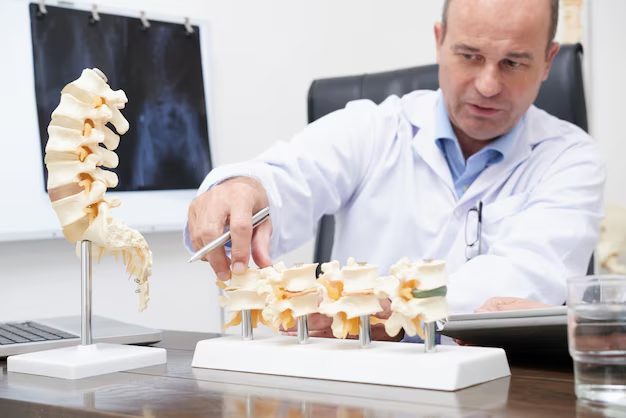The Hidden Bone Health Crisis Doctors Are Fighting

Most people think only older adults face bone problems. They’re wrong. Today, doctors are seeing an alarming trend of young and healthy-looking people in their 20s and 30s showing signs of weak bones. The scariest part? Most don’t know it’s happening until they break a bone or two.
The Shocking Reality Behind Modern Bone Health
Recent data reveal a disturbing trend that has caught the medical community’s attention. According to healthcare professionals, bone-related issues are no longer confined to elderly populations. Young adults in their 20s and 30s are showing concerning signs of decreased bone density, with many showing early signs that could lead to serious problems as they get older.
The facts are scary. More people are breaking bones now than 20 years ago. Hospitals are seeing so many injuries that they can barely keep up.
Why This Crisis Remained Hidden for So Long
Most health problems give you warning signs. However, bone problems don’t. Your bones can get weak without you feeling anything wrong. When you finally start having pain or trouble moving, a lot of damage has already happened.
Our modern life is making this worse. Sitting at desks all day, eating processed foods, staying indoors, and staring at screens have all contributed to a decline in our physical strength. These problems built up slowly over many years, so doctors didn’t notice the pattern until recently.
The Science Behind the Solution
Medical professionals have found that addressing this crisis requires a comprehensive approach involving multiple nutrients working in harmony. Recent scientific research has revolutionised our understanding of bone health, moving beyond simple calcium supplementation to more sophisticated nutritional strategies.
The Research That Changed Everything
A groundbreaking study published in the Journal of Food Biochemistry demonstrated that advanced calcium formulations show significantly better absorption rates and vitamin D3 stability compared to standard preparations. This research, available at the Wiley Online Library, represents a breakthrough in how medical professionals approach bone health supplementation.
The National Institutes of Health has continuously updated its calcium recommendations based on emerging research, with its latest professional fact sheet providing comprehensive guidance on optimal intake levels and absorption factors.
The Multi-Nutrient Approach
A recent meta-analysis published in PubMed examined calcium supplementation effects in younger populations. The study, accessible at PubMed Research, revealed that calcium alone provides limited benefits, but when combined with complementary nutrients, the results improve dramatically.
Medical professionals now recognise that effective bone health requires five critical components working synergistically:
- Calcium as the Foundation: Medical research consistently shows that calcium remains the primary building block for bone tissue. Calcium carbonate benefits extend beyond basic bone formation, supporting cellular functions throughout the skeletal system.
- Vitamin D3 for Enhanced Absorption: Without adequate vitamin D3, your body can absorb only 10-15% of dietary calcium. Research published in clinical journals demonstrates that 400 IU of vitamin D3 significantly improves calcium absorption rates, making it an indispensable partner in bone health protocols.
- Magnesium for Activation: Approximately 60% of your body’s magnesium resides in bone tissue. Scientific studies show that magnesium deficiency directly impacts bone formation and can negate the benefits of calcium supplementation. Healthcare providers now recommend 120mg of magnesium alongside calcium for optimal results.
- Zinc for Bone Formation: Research indicates that zinc plays a crucial role in bone metabolism and collagen synthesis. Studies demonstrate that even small amounts, around 15mg, can significantly impact bone health outcomes when combined with other essential nutrients.
- Vitamin K2 for Proper Utilisation: Perhaps the most exciting discovery in bone health research involves vitamin K2. It demonstrates that vitamin K2 ensures calcium gets deposited in bones rather than soft tissues. The research shows that 90mcg of K2 works synergistically with vitamin D3 and calcium.
Taking Action Before It’s Too Late
The hidden bone health crisis requires immediate attention, but the good news is that proper care can make a significant difference. Medical research consistently shows that comprehensive nutritional support can help maintain healthy bone density and reduce fracture risks.
For those seeking a comprehensive solution, Pantacal tablets from Nutrix Health Care provide exactly the nutrient combination that medical research recommends. This formulation addresses all five critical components identified in recent studies, offering 1200mg calcium, 400 IU vitamin D3, 120mg magnesium, 15mg zinc, and 90mcg vitamin K2 per tablet.
The crisis may be hidden, but the solution is increasingly clear. By working with healthcare providers and choosing evidence-based nutritional support, individuals can take proactive steps to protect their skeletal health before problems develop.
